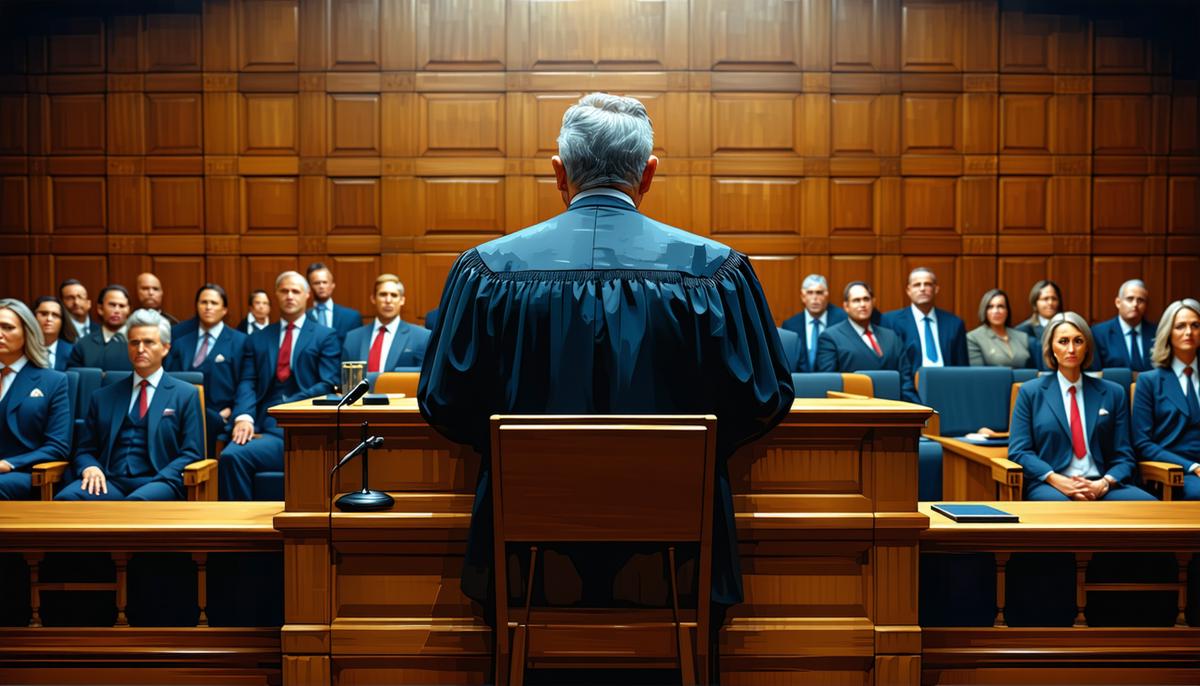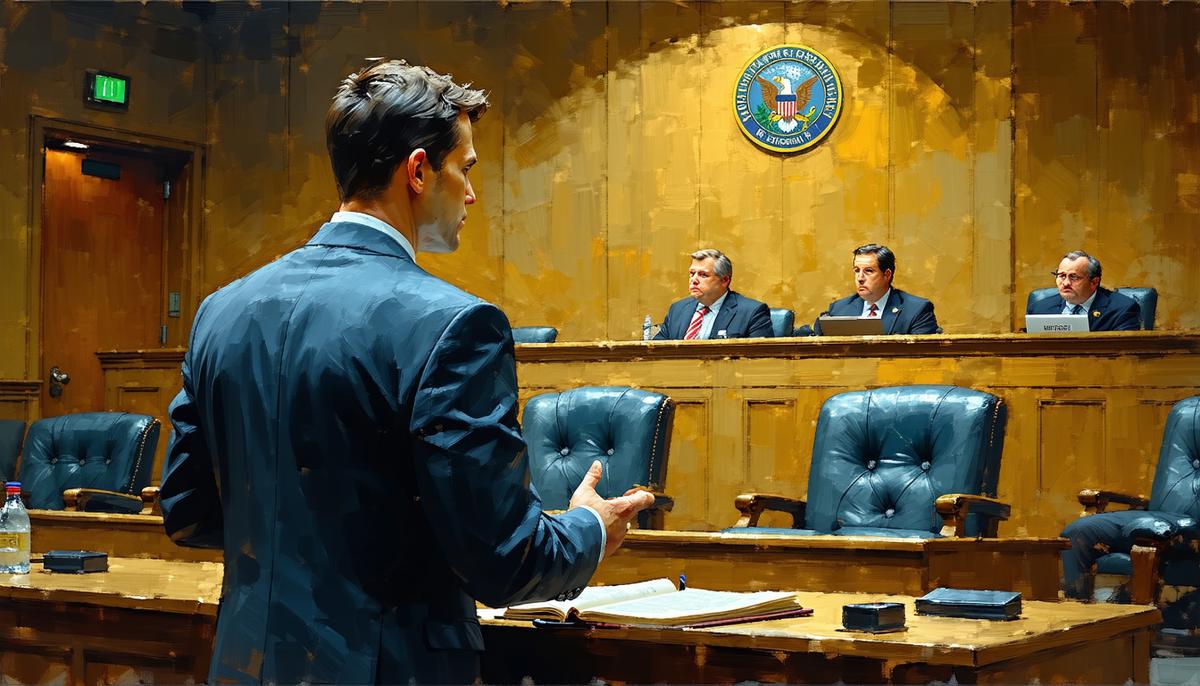Trump Sentenced to Unconditional Discharge in Hush Money Case
President-elect Donald Trump received an unconditional discharge for his criminal conviction in New York on Friday, marking a historic moment as the first U.S. president to be tried and convicted on criminal charges. The sentencing, which carried no penalties, fines, or jail time, concluded an unusual courtroom drama that has captivated the nation.
Trump, appearing virtually from his Mar-a-Lago estate, maintained his innocence and criticized the proceedings:
"This has been a very terrible experience. It's a setback for New York's justice system and a politically motivated witch hunt."
Assistant District Attorney Josh Steinglass argued that Trump's actions had caused "enduring damage to public perception" of the justice system. However, Trump's attorney, Todd Blanche, dismissed these claims, suggesting the trial's legitimacy was questionable from the start.
Judge Juan Merchan defended his decisions, emphasizing that despite the high-profile nature of the case, it was treated like any other once proceedings began. He stated that Trump's position as President-elect did not negate the jury's verdict.
The unconditional discharge leaves Trump without additional punishment, but his legal team is preparing for appeals. As the next chapter unfolds, it's clear that Trump's legal and political journey is far from over.
Judge Merchan's Rationale for Sentencing
Judge Juan Merchan carefully balanced the demands of justice with the unique legal considerations surrounding the presidency. He emphasized that while the office of President carries significant privileges, it doesn't erase a jury's verdict. Merchan noted that Trump's impending presidency required careful consideration but didn't absolve prior actions.
Despite the media frenzy, Merchan insisted the trial itself was conducted like any other. He acknowledged the historic nature of sentencing a president-elect but maintained that legal procedures remained standard.
Merchan's decision to impose an unconditional discharge appeared designed to:
- Minimally disrupt the electoral process
- Respect the jury's decision
- Allow for further legal exploration through appeals
- Avoid impeding Trump's ability to take office
In essence, Merchan's decision sought to uphold justice while navigating the unprecedented circumstances of the case.

Prosecution Arguments and Future Implications
Assistant District Attorney Josh Steinglass argued that the evidence against Trump was overwhelming and unanimously validated by the jury. He expressed concern about Trump's attitude toward the legal process, suggesting it could undermine public faith in the justice system.
Steinglass criticized Trump's public statements during the trial, arguing they sowed doubt about the integrity of the proceedings. He emphasized the significance of a president-elect facing such serious charges and the jury's decisive verdict.
While the unconditional discharge spared Trump immediate punishment, it left the door open for appeals. This outcome allows Trump to continue his political aspirations while the legal battle persists in the background.
As Trump prepares to lead the nation again, the shadow of this case lingers. It's a testament to his resilience and determination, but also a reminder of the ongoing legal challenges he faces. The story is far from over, with future appeals likely to keep this case in the spotlight.

- New York v. Trump, No. 71543-23, New York Supreme Court (2025).
- United States v. Trump, 600 U.S. ___ (2024).
- Merchan J. Order on Presidential Immunity. New York Supreme Court. January 3, 2025.